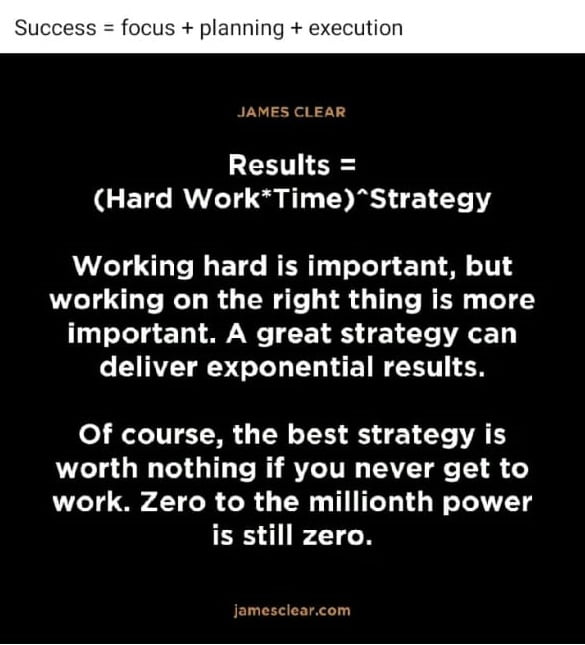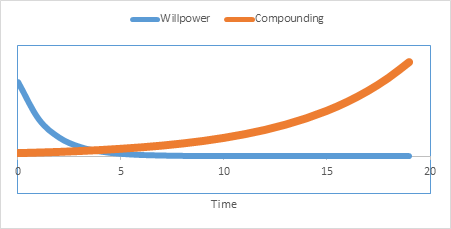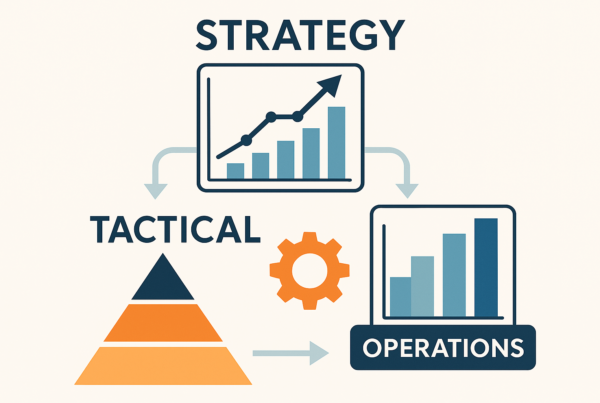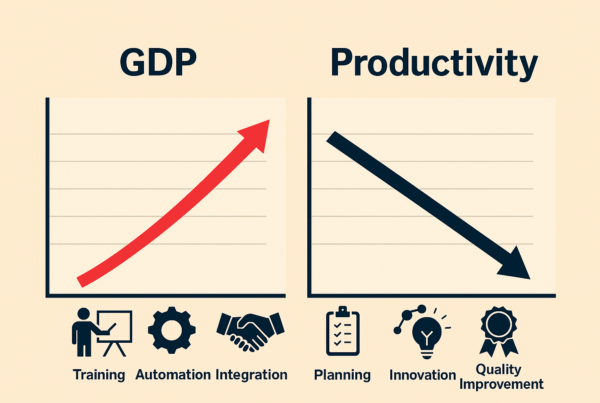Good habits are a powerful tool that can have massive positive impacts on your life. Your eating habits determine your physique; your sleeping habits determine your vitality and your business habits determine your entrepreneurial success.
As humans, we tend to rely on our willpower to achieve our goals. However, willpower decays. Think of every endeavor you may have not successfully undertaken – the motivation is high at the beginning and it fades over time until you are back where you started. To become a successful entrepreneur, one cannot rely solely on willpower, but rather a system that ensures that the ball keeps rolling, no matter how you feel. Do not worry about having weak willpower – it is a finite resource. With the correct controls and systems in place, you can hold yourself accountable to setting goals, developing and implementing an action plan.
In this post, we are going to outline three simple action steps to create a system to enable you to start the process of developing long-lasting habits which will help your business tremendously. The action steps are as follows:
1. Start as small as possible
2. Make your habit exist in the real world
3. Rely on the magic of compounding
Follow the three steps in order to develop your system of working on and improving your business or side-hustle that is independent of your emotions.
Start as small as possible
Optimize the start and make it as small as possible. When you start small, you are giving yourself the best chance of creating a business habit. Once a business habit becomes established into your daily/weekly/monthly routine, it can then be optimized – you cannot optimize a habit that does not exist.
The Japanese car manufacturing industry call continuous improvements “Kaizen”, Tony Robbins calls it “CANI” (continuous and never-ending improvement) and Sir David John Brailsford CBE calls it the “aggregation of marginal gains”. The trick is to make small changes to your system of habits and allow time to amplify your progress.
Be cautious not to get ahead of oneself. When one goes to the gym for the first time, one does not walk up to the rack and immediately start squatting 200 kgs. He/She needs to start right at the bottom and build up the training and strength to that desired level – the same is true when starting a business. You do not need the most sophisticated accounting software when you start – you only need Excel. You do not need six screens across your desk when you start – you only need one.
The smaller the tasks, the easier it is to implement. “Small” is relative, so whatever you are trying to achieve, take that start and cut it down as much as you can. For example, if you want to meditate every day, you could start by reading a book on yoga, change into loose clothing, clear out space in your lounge, put calming music on, then sit down and perform strict “zazen” meditation for a solid 30 minutes. Or, you could just sit outside for 5 minutes – this would be the smallest and simplest form of meditation. The first option sounds exhausting, while the second option sounds so small and effortless it can be maintained and improved upon every day.
Once you have established the infinitesimal task(s), the next step is to give them time to grow in your life.
Make your habit exist in the real world
Your intention needs to exist in space and time. Your habit has to become tangible in your daily activities – to do this, give your habit time inside your daily schedule and allow it space to exist. Look at the following example:
Instead of saying: “Today I am going to work on my business plan”.
Rather say: “Today at 12:30 PM I am going to work on the executive summary of my business plan in my room for 15 minutes”.
In the above example, you have carved out space (room) and time (12:30 – 12:45) for your goal (work on the business plan) to exist in the real world. You have also made it specific and small (write the executive summary only) thus making it achievable. If you do not allow these habits to exist in your daily life, they tend to be easily pushed out by other events (eg. Facebook and Instagram scrolling, Netflix, etc.).
A simple trick I use is to leave my spare phone on my work desk under my textbooks. At 7:30 PM every week night an alarm will go off which will trigger me to sit at my desk and reach for my textbooks to close the alarm. In that swift moment, I now have my textbook in hand and am sitting in my study zone ready to learn for the next 30 minutes.
Continue to do these small actions every day. By constantly working in small increments, you are invoking the powers of compounding, which leads to the final step. The below diagram is a perfect illustration of how results can be achieved given the correct balance between time, work and strategy.

Rely on the magic of compounding
The final puzzle piece is to work on these small tasks, and improve them as you go along. Over time, the duration and complexity can increase. You have already created the required inertia that can be built upon to reach more elaborate goals. In this system, you are no longer relying on willpower – you are relying on compounding. Willpower decays over time, while compounding gets stronger over time:

Keep the incremental changes small and consistent, and compounding will take care of the progress. Compounding has worked for Warren Buffett, the Japanese car industry, and it can work for your business too. Make sure to keep the habit going – if you do miss a day, try your hardest to not miss the next day (never miss twice).
Parting thoughts
Note that these principles can be applied to every facet of your life. If you want to eat healthier, start by removing half a tea spoon on sugar from your morning tea/coffee and then start to make other small changes in your nutrition plan (eg. eat a carrot every day before having lunch). Allow for time to amplify these small changes and you will be well on your way to looking and feeling healthier. Health and wealth are directly correlated.
Author
Trishen Naidoo is the co-director of Fulcrum Venture Capital (FVC), a start-up company based in Durban that focuses on social media marketing and investing. FVC have enlisted the services of Nikshen Consulting to assist in growing their business with the correct coaching and guidance.


![Building the habits of successful business practices [Trishen Naidoo]](https://nikshen.com/wp-content/uploads/2020/08/cant-4505837_1920.jpg)


